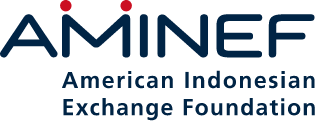The Jakarta-based Centre for Strategic and International Studies (CSIS) was named top think tank in Southeast Asia and the Pacific by the 2018 Global Go To Think Tank Index.
The list is compiled annually by United States-based Think Tanks and Civil Societies Program (TTCSP) of the Lauder Institute at the University of Pennsylvania.
The CSIS is followed by the Singapore-based Institute of Defense and Strategic Studies and Australia’s Lowy Institute for International Policy, in second and third place, respectively.
In its recently published report, the TTCSP collates results based on at least 28 criteria, including quality and commitment of leadership, the quality of analysts, the impact of research and programs, media reputation, as well as ability to recruit and retain elite scholars and analysts.
The main factor that brought the CSIS to the top of the list was its ability to survive in a country where evidence-based policymaking was less common decades ago and acquiring funding for research was difficult, CSIS executive director Philips J. Vermonte told The Jakarta Post on Sunday.
“The younger generation of researchers continues the intellectual tradition laid down by the founders of the CSIS almost 50 years ago,” he said. “So, making adjustments and at the same time maintaining wisdom of the founders is important.
“We also always try to get the best researchers available who are committed to their profession. Passion is also important.”
Born on Sept. 1, 1971, out of the youthful idealism of founders Jusuf Wanandi and Harry Tjan Silalahi, who wanted to help the New Order regime draw up its short and long-term strategic policies, the CSIS has faced various challenges navigating through six Indonesian presidencies.
The think tank has also reached out to the international community to inform them about Indonesia, its policies and the nation’s developments.
“The credibility this institution has built on the international stage means that there was no shortage of patrons and support for our research work,” Jusuf writes in his memoir Shades of Grey: A Political Memoir of Modern Indonesia 1965-1998, recounting the CSIS’ lean years.
In the 2018 Global Go To Think Tank Index, the CSIS placed 58th among 144 top non-United States think tanks, or 80th out of 177 when factoring in US-based think tanks.
“This kind of international reminds all of us at the CSIS that we have been around for quite some time and yet one consistent challenge remains, which is how to stay relevant as a policy-oriented research institute in the democratic environment of Indonesia,” Philips said.
One of the challenges ahead for the CSIS is to further adapt to the internet era and improve outreach among the digital natives, he said. “The challenges are now about how to stay relevant amid a growing number of think tanks — which means growing competition — and the increasing use of social media and the internet.”
The CSIS has already tried to improve its outreach by using platforms popular among youths, including Twitter and Facebook. It has even created a YouTube channel on which to live-stream events or public discussions.
Last year, the CSIS became the only Indonesian think tank to have ever made a list of the most influential think tanks in the world, the 2017 Global Go To Think Tank Index.
Last Updated: Jul 31, 2022 @ 6:40 pm



